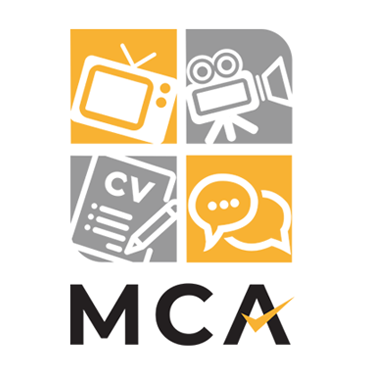Unscripted Skills Fund production assistant training programme
&cropxunits=490&cropyunits=276&maxwidth=1600&maxheight=900&width=1160&height=653&quality=90)
Production management offers an exciting career path in TV and high levels of employability. The production assistant (also known as a production secretary or production management assistant) is the starting point for a dynamic and challenging career in production management which requires key skills and industry training.
This UK-wide programme is aimed at:
- new entrants committed to pursuing a career in production management
- those serious about transferring into unscripted production management from other departments or genres within TV or film
- those looking to return to unscripted TV after a career break
- those from other industries who have transferable skills and/or experience e.g working in admin, travel agents, theatre, events
Successful applicants will receive:
- seven days of training which will consist of five days of online training via Zoom and two days of in person training in Birmingham (venue location TBC – travel & accommodation allowance will be provided for those from outside the area)
- three month paid work placement in an independent production company
- six hours of mentoring sessions from an industry professional
This programme is supported by the ScreenSkills Unscripted TV Skills Fund which invests in training for the unscripted workforce thanks to contributions from BBC, Channel 4, Sky, A+E Networks UK, Discovery UK, Channel 5, Netflix, ITV, Amazon, UKTV and S4C matched by production companies.
Who it's for
To apply for this programme you must want to pursue a career specifically in production management in unscripted television.
This is not an opportunity to work in scripted television or to develop an editorial career as a researcher, assistant producer or producer/director.
Although the majority of the training sessions will be running online, you must be based in or near the following locations, or be willing to relocate for the duration of the three month placement with a view to relocating permanently:
- Belfast
- Birmingham
- Brighton
- Bristol
- Cardiff
- Glasgow
- Leeds
- London
- Manchester
- North Wales
It is open to:
- new entrants or individuals at the early stages of their career who may already be working as a runner, who want to focus on developing a career in production management - you should have 12-months or less experience in the industry
- those who work in other roles in the industry such as editorial, technical and craft who are looking to move into production
- those working in scripted, corporate/commercial, animation or post production who want to make the move into unscripted TV production
- those looking to return to unscripted TV production after a career break
- those from other industries who have transferable skills and/or experience e.g working in admin, travel agents, theatre, events, retail, hospitality etc
Please take a look at the unscripted production management department job profiles to familiarise yourself with what is involved in a production assistant role and the skills required.
We always welcome applications from under-represented groups, including, but not limited to: those from Minority Ethnic Groups; people with a disability; people from the LGBTQ+ community and those from lower socio-economic backgrounds.
We offer inclusive training. If you have any needs which we can accommodate during the recruitment process and beyond, please let us know and we will be happy to work with you to meet them.
Contact: production@mediacareeradvice.co.uk
This programme will include a three-month placement for each delegate with a salary contribution from the Unscripted TV Skills Fund. If you work for a production company that would be interested in offering one of these placements, please email USF@screenskills.com
What it covers
Course content includes:
- What to expect when working in TV
- ALBERT/sustainability
- Setting up shoots – location, studio, outside broadcast, overseas (including in remote & hostile environments)
- Understanding kit
- What is required on a call sheet
- The importance of risk assessments and health and safety on productions
- Release forms
- GDPR/dealing with confidential and sensitive information
- Expenses/petty cash/per diems/POs/credit cards/cost managers/budgeting basics
- Clearances/copyright (including music and archive)
- The post production process/workflow
- Post production paperwork including how to use Silvermouse
- Negotiation skills
- Mental health awareness
- What to do when things go wrong
- Freelance toolkit and CV clinic
- Addressing unconscious bias: basic awareness in the workplace (e-learning)
- Tackling bullying & harassment at work (e-learning)
- Inclusive hiring for the screen industries (e-learning)
This will be an interactive course with group work/discussions and industry exercises. You will be provided with a resource pack and useful documents at the end of the course.
Once training is complete, you will be assigned an industry mentor and start your three-month paid placement.
Course tutors
Hannah Gosney will be running the training focused on the production assistant role and CV clinic and is the programme manager. She is an experienced Head of Production/Senior Production Manager and founder of Media Career Advice. She has extensive knowledge and experience of what it takes to deliver programmes from pre-production to post production across a variety of unscripted genres.
Starting out as an office runner, Hannah quickly worked her way up the ranks working on extreme sports shows and commercials to remote and hostile shoots among others, to specialise in factual, factual entertainment and natural history programmes. Credits include The Mekong River with Sue Perkins (BBC 2), Flintoff’s Road to Nowhere (Sky One), Wild Shepherdess with Kate Humble (BBC 2), Wales: Land of the Wild (BBC 2), Veganville (BBC Three) and Wonders of the Celtic Deep (BBC Wales).
Throughout her career she’s been passionate about nurturing and training crew and understands the importance of best practice in the industry. With this in mind she now focuses her time on providing training for the media industry with an emphasis on those working in production. She has a Level 3 Train the Trainer qualification, a Level 3 Award in Education and Training contextualised to the screen industries and is a Level 3 qualified ILM Coach & Mentor.
Matthew Harrison will be supporting the delegates with understanding kit for their unscripted productions. Matthew has worked in television since 1999, when he started as a technical trainee in BBC Wales. As a member of staff there for 17 years, he gained experience in the camera department in studios, OBs and on location, and also in production with the BBC Wales music department. Since leaving BBC Wales in 2017, Matthew has continued to direct short insert films for music and dance productions as well as working as a freelance camera operator. He currently works across a range of productions, including Pobol Y Cwm (as director of photography/camera supervisor), sports coverage for various broadcasters, and orchestral concert coverage. Matthew is also Honorary Secretary of the Royal Television Society Cymru.
David Thomas will be running the freelance toolkit element of the training. He is a highly experienced trainer, with a qualification to teach English to adults, as well as ScreenSkills’ own Level 3 Award in Education and Training contextualised to the screen industries.
His BBC career saw him running an educational production department for eight years. He has run online training for creative freelancers for about 10 years and ran courses during the pandemic helping other trainers to become more confident with training via Zoom or Teams. He has clients all around the UK, including the BBC, Channel 4, unions (BECTU, NUJ, Writer’s Guild, CULT Cymru), The Grierson Trust, Netflix and Amazon. His website has a wealth of information and downloadable resources for freelancers, all of which are available to trainees for ever.
Jude Spencer will be running the session on mental health awareness. Jude is an internationally accredited mental health first aid trainer and consultant working for clients such as ITV, Screenskills and PACT to help improve mental health awareness in the industry and empower individuals and companies to support their own and each other's mental health better.
With more than a decade’s experience in film and TV, working for broadcasters such as BBC as well as independent production companies, Jude understands the unique challenges and pressures that come from working in the creative sector. Jude tailors her courses to address these specific challenges, making them relevant and bespoke to the companies and individuals she trains.
In response to the Covid-19 crisis, Jude set up The Daily Cuppa, an online group where people in the industry can connect, share personal challenges, and support each other. Jude is also a Co-director for 6ft From the Spotlight, a CIC campaigning for meaningful change in the industry including promoting the use of a wellbeing facilitator on productions.
How to apply
Click the 'Apply now' button above. You will need to:
- create and be logged into your ScreenSkills profile
- upload an up to date CV to your ScreenSkills profile
- fully complete the application form
The training programme is heavily subsidised with a fee of only £200, payable by successful delegates or their employers. There are bursaries available for those who require support. Please email – production@mediacareeradvice.co.uk if you intend to apply for a bursary.
In order to apply you should meet the following criteria:
- You must want to pursue a career specifically in production management in unscripted television - this is not an opportunity to work in scripted television or to develop an editorial career as a researcher, assistant producer or producer/director
- You must have proven organisational, team working and scheduling skills - please outline this experience in your application
- You must be able to attend all seven days of training
- You must be able to work for thre months in (paid) placements in or around the city you are applying for
- You must have the right to work in the UK
- You can pay the £200 fee or intend to apply for a bursary
Judging information
Key dates:
Cohort 1
Applications are currently open, but close at midnight on the 29th September (only apply for cohort 1 if you are available for all of the dates listed below. Cohort 2 applications will open from the 2 January 2024).
Interviews take place during the w/c 2 October and w/c 9 October.
Applicants will be notified if they have been successful or unsuccessful during the w/c 16 October.
Training takes place:
- 30 October - online session
- 1 November - online session
- 3 November - online session
- 6 November - online session
- 7 November - online session
- 9 November - in person training in Birmingham (venue location TBC)
- 10 November - in person training in Birmingham (venue location TBC)
Placements start w/c 13 November. (Please note, there may be delays on placement start dates due to production company workloads, however we endeavour to start these as close to the middle of November as we can).
Mentoring will start around the middle of November. You will have six hours of sessions with your assigned mentor.
Cohort 2
Applications will open from the 2 January 2024 and close at midnight on the 9 February.
Interviews take place during the w/c 12 February and w/c 19 February.
Applicants will be notified if they have been successful or unsuccessful during the w/c 26 February.
Training takes place:
- 11 March - online session
- 13 March - online session
- 15 March - online session
- 18 March - online session
- 19 March - online session
- 21 March - in person training in Birmingham (venue location TBC)
- 22 March - in person training in Birmingham (venue location TBC)
Placements start w/c 25 March (please note, there may be delays on placement start dates due to production company workloads, however we endeavour to start these as close to the end of March as we can).
Mentoring will start around the end of March. You will have six hours of sessions with your assigned mentor.
&cropxunits=400&cropyunits=400&maxwidth=600&maxheight=600&width=150&height=150&quality=80&scale=both)